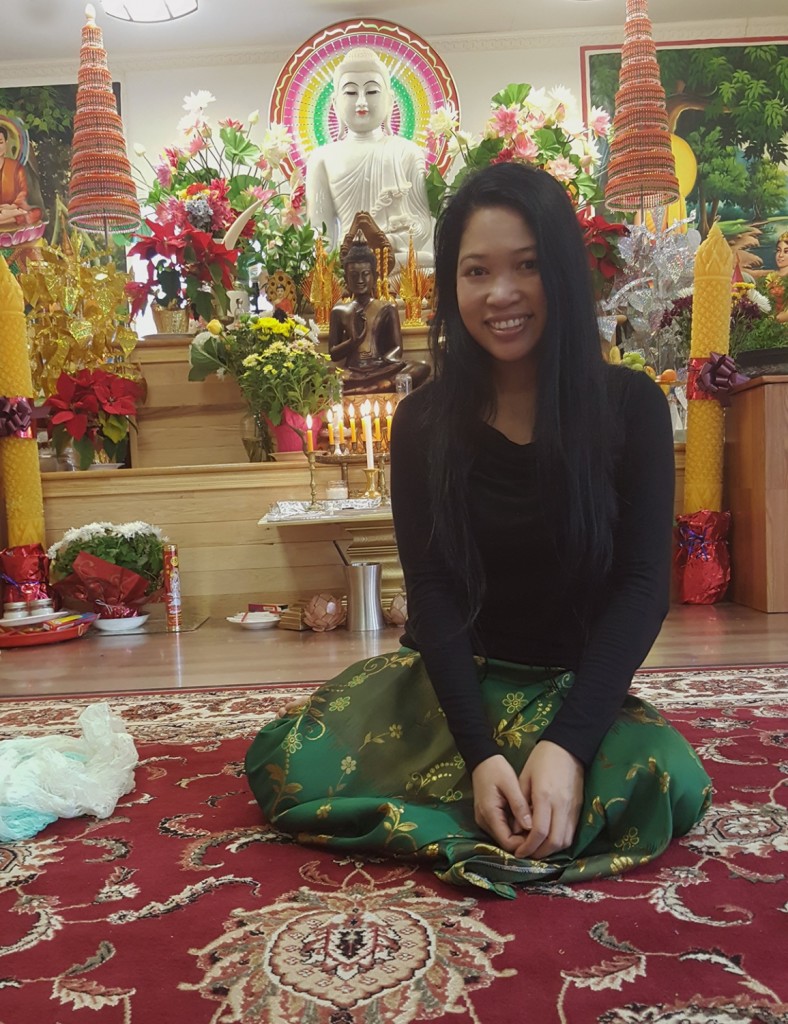-
Comment January 5, 2016
-
My father’s birthday today Jan. 3rd
Comment January 3, 2016I do not need a wealthy father, but a father with beautiful Heart… Jendhamuni
You may have thought I didn’t see,
Or that I hadn’t heard,
Life lessons that you taught to me,
But I got every word.
Perhaps you thought I missed it all,
And that we’d grow apart,
But Dad, I picked up everything,
It’s written on my heart.
Without you, Dad, I wouldn’t be
The person I am today;
You built a strong foundation
No one can take away…By Joanna Fuchs
-
No Need to Fight
Comment January 2, 2016In order to make yourself a person of the world, you have had to fight for every inch. Even when you are pressing your clothes or busy organizing a cocktail party, there is always an undercurrent of trying to prove something, trying to achieve something. Whatever you do involves some kind of chauvinism, which in fact could be one definition of ego. However, individual chauvinism can be overcome. The achievement of mindfulness and awareness gives you tremendous freedom: that is the idea of individual salvation. You realize that there is no need to fight or wage warfare. In this way, the development of awareness leads to tremendous relaxation, gentleness, and peace. ~Chögyam Trungpa
-
The Story of Magha
Comment January 2, 2016Verse 30: Through mindfulness (in doing meritorious deeds) Magha became king of the devas. Mindfulness is always praised, but negligence is always blamed.
1. appamadena: through mindfulness; i.e., mindfulness in doing meritorious deeds. In the above story, Magha, the young man from Macala village, by cleaning and clearing land and making roads was reborn as Indra or Sakka, king of the devas. (The devas are celestial beings.)
The Story of Magha
While residing at the Kutagara monastery near Vesali, the Buddha uttered Verse (30) of this book, with reference to Sakka, king of the devas.
On one occasion, a Licchavi prince, named Mahali, came to listen to a religious discourse given by the Buddha. The discourse given was Sakkapanha Suttanta. The Buddha spoke of Sakka vividly in glowing terms; so, Mahali thought that the Buddha must have personally met Sakka. To make sure, he asked the Buddha, and the Buddha replied, “Mahali, I do know Sakka; I also know what has made him a Sakka.” He then told Mahali that Sakka, king of the devas, was in a previous existence a young man by the name of Magha, in the village of Macala. The youth Magha and his thirty-two companions went about building roads and rest houses. Magha took upon himself also to observe seven obligations. These seven obligations are that throughout his life, (1) he would support his parents; (2) he would respect the elders ; (3) he would be gentle of speech; (4) he would avoid back-biting; (5) he would not be avaricious, but would be generous; (6) he would speak the truth; and (7) he would restrain himself from losing his temper.
It was because of his good deeds and right conduct in that existence that Magha was reborn as Sakka, king of the devas.
Then the Buddha spoke in verse as follows:
Verse 30: Through mindfulness (in doing meritorious deeds) Magha became king of the devas. Mindfulness is always praised, but negligence is always blamed.
At the end of the discourse Mahali attained Sotapatti Fruition.Dhammapada Verse 30
Magha VatthuAppamadena1 maghava
devanam setthatam gato
appamadam pasamanti
pamado garahito sada.Source: Tipitaka
-
The virtuous man
Comment January 2, 2016 -
May every living thing be full of bliss
Comment January 2, 2016 -
Take care of your garden…
Comment January 1, 2016









